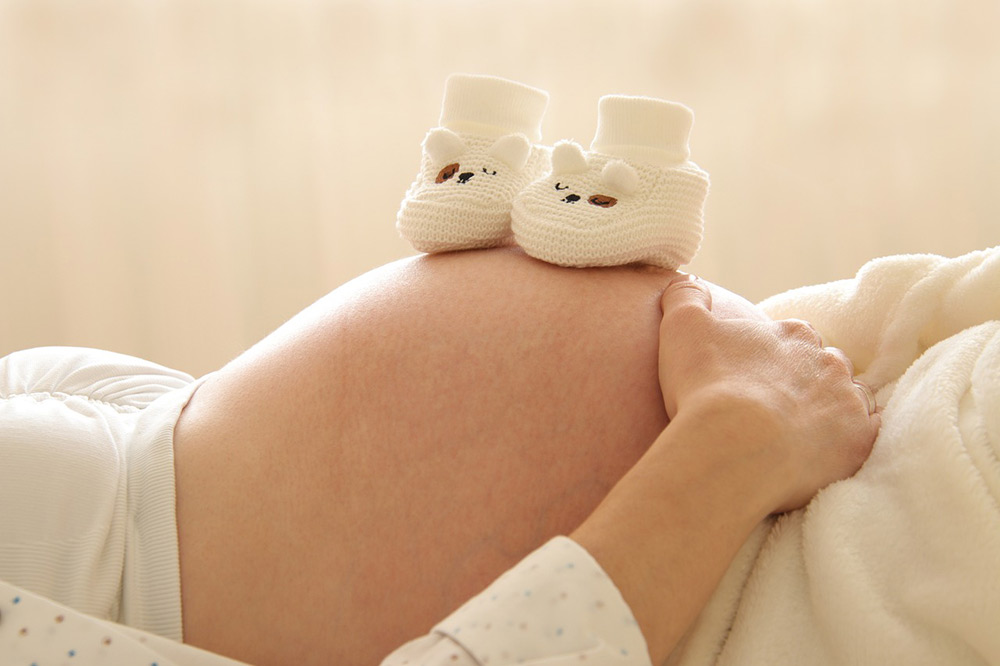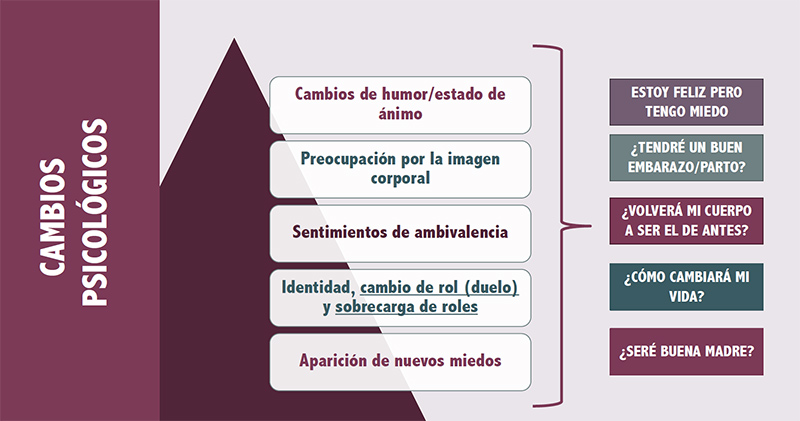
Pregnancy is a period of both deep and exciting changes on multiple levels. As our bodies prepare to bring life into the world, our minds also undergo significant changes. Mental health during pregnancy is a crucial topic that deserves the attention of all expectant mothers and the support from their closest loved ones and specialized professionals.
How does pregnancy affect mental health?
While it is true that many expectant mothers experience great joy and excitement upon discovering they are pregnant, they may also express ambivalence feelings. Some of the factors that affect mental health during pregnancy include all the changes that occur during this stage and the type of support received:
- Biological changes: During pregnancy, a woman’s body undergoes significant hormonal changes that can affect her emotions and therefore, their emotional management. Fluctuations in hormones, such as estrogen and progesterone, can influence mood and perceived well-being.
- Physical changes: As the body changes, women may feel uncomfortable, which can, in turn, affect their emotional well-being. The presence of physical symptoms (such as nausea, fatigue, etc.) alongside the appearance of other physical changes (stretch marks, weight gain, etc.) can generate feelings of discomfort and even distortion of body image, especially given the social pressure to “bounce back” after childbirth or preconceived notions about the maximum weight one should gain during pregnancy.
- Social, work, and family changes: The relationship with a partner, the presence of social and family support, and work-life balance are triggers that directly influence mental health during pregnancy.
- Psychological changes: Sudden mood swings and occasionally contradictory feelings (“I can’t wait to meet the baby, but I’m afraid of not doing it right”) are common. In addition, the anticipation of childbirth and the responsibility of caring for a newborn can produce high levels of anxiety.
- The type of healthcare support received: It is essential for the team of professionals accompanying a woman during pregnancy to focus on her emotional state, apart from ensuring the proper development of the baby, through a humane close approach.
What psychological changes does pregnancy produce?
Pregnancy not only affects a woman’s body but also her perceptions, thoughts, and emotions. Some common psychological changes that can occur during pregnancy include:
- Mood changes: Likely a result of characteristic hormonal changes. This is accompanied by ambivalence feelings, concerns about body image and an identity crisis. Indeed, a role change and the corresponding mourning process will occur, involving uncertainty and not knowing how to manage of new fears (will I be a good mother?).
- Changes in self-perception: A woman’s body image may be altered as her body changes to accommodate the baby. Some women may struggle by refusing to accept these changes. Therefore, they may experience a decrease in their self-esteem and a distortion of their own body image.
- Emergence of new concerns and priorities: Pregnancy often leads to a reassessment of life priorities. Expectant mothers may feel the need to set new goals and plans for the future, exposing themselves to a higher level of stress.
- Nesting: Many pregnant women feel a natural urge to prepare the environment for the baby’s arrival. This phenomenon, known as “nesting,” can lead to changes in the home, the purchase of baby clothes and care items, and the baby’s room organization.
In this scenario, it is natural to feel fear, uncertainty, and even to have occasional negative thoughts that arise from concerns about the new role we are about to take on. If you want to go deeper into this topic, you may find it helpful to read other sections of our blog related to the importance of self-care as a mother/father.
Perinatal mental health importance
Perinatal mental health extends beyond childbirth or the baby’s birth, encompassing the period from conception, pregnancy, and childbirth to postpartum and even the first years of the newborn’s life.
Indeed, perinatal psychology addresses tasks of prevention, support, care, diagnosis, and intervention, both with the woman and her family throughout all the described stages. It is important to note that despite the growing demand, there is limited research on perinatal mental health to date, and there are barely 10 perinatal mental health units with multidisciplinary teams throughout Spain to address the demand for perinatal care.
Specifically focusing on pregnancy, it is a period marked by ambivalence—a vulnerable time that requires support. Therefore, mental health during pregnancy is crucial for both the mother and the optimal baby development. Some reasons why attention to perinatal mental health is essential include:
- Impact on the baby: Maternal stress and anxiety can affect the baby’s development, in addition to increasing the risk of complications during labour and birth. An emotionally healthy environment in the womb can contribute to the emotional and cognitive well-being of the baby.
- Positive motherhood and parenting: A mother who receives support and takes care of her mental health usually demonstrates a greater ability to care for and nurture her baby. Emotional and psychological support is fundamental for the baby’s well-being in order to establish a secure bond between mother and child.
- Prevention of postpartum mental disorders: Taking care of mental health during pregnancy reduces the risk of developing postpartum mental disorders, such as postpartum depression. Early and adequate support can prevent future complications.
Mental health during pregnancy is an essential basis of overall well-being for both the mother and the baby. It is crucial to recognize that emotional and psychological changes are a natural part of this stage of life. Providing support, fostering open communication, and providing access to mental health resources are essential elements to ensure a healthy pregnancy and a more adaptive transition to motherhood. Caring for perinatal mental health is an act of responsibility that often requires support from a psychologist specialized in adaptation issues.
It is important to consider that each woman experiences and perceives her pregnancy differently. Indeed, experiencing it differently or assigning different degrees of importance compared to other expectant mothers does not mean that our experience or perception is incorrect or that we are doing something “wrong.” All pregnancy experiences are valid and require support and spaces where women can share the uncertainty and doubts associated with this new stage.
Bibliographic references
Bridle, L., Walton, L., van der Vord, T., Adebayo, O., Hall, S., Finlayson, E., Easter, A., & Silverio, S. A. (2022). Supporting Perinatal Mental Health and Wellbeing during COVID-19. International journal of environmental research and public health, 19(3), 1777. https://doi.org/10.3390/ijerph19031777
Contreras-Carreto, N. A., Moreno-Sánchez, P., Márquez-Sánchez, E., Vázquez-Solares, V., Pichardo-Cuevas, M., Ramírez-Montiel, M. L., Segovia-Nova, S., González-Yóguez, T. A., & Mancilla-Ramírez, J. (2022). Perinatal mental health and recommendations for integral care in gyneco-obstetric hospitals. Cirugia y cirujanos, 90(4), 564–572. https://doi.org/10.24875/CIRU.21000003
Jin, Y., & Murray, L. (2023). Perinatal mental health and women’s lived experience of the COVID-19 pandemic: A scoping review of the qualitative literature 2020-2021. Midwifery, 123, 103706. https://doi.org/10.1016/j.midw.2023.103706
Laura N. Roza Amengual
Psychologist B-02389









